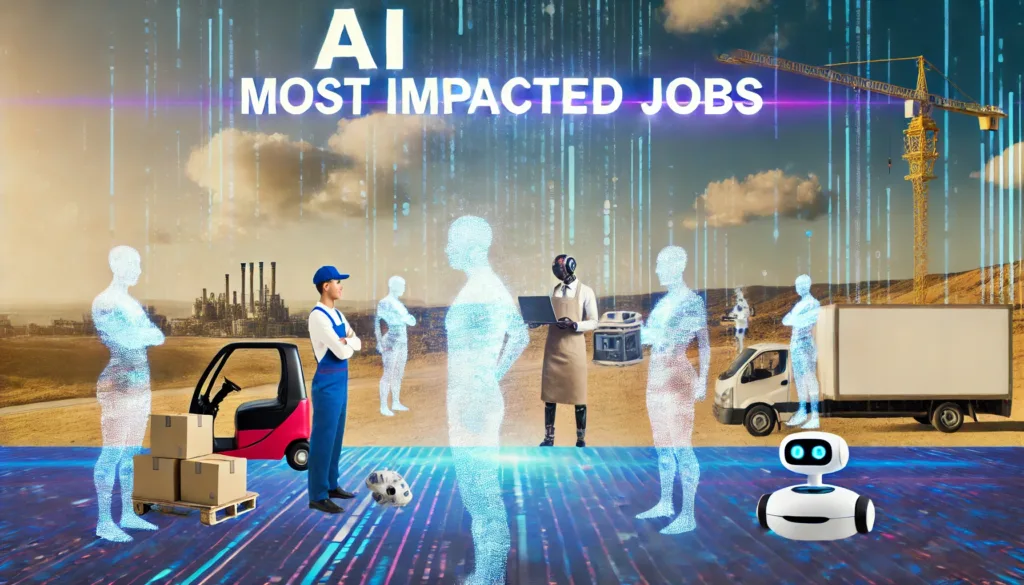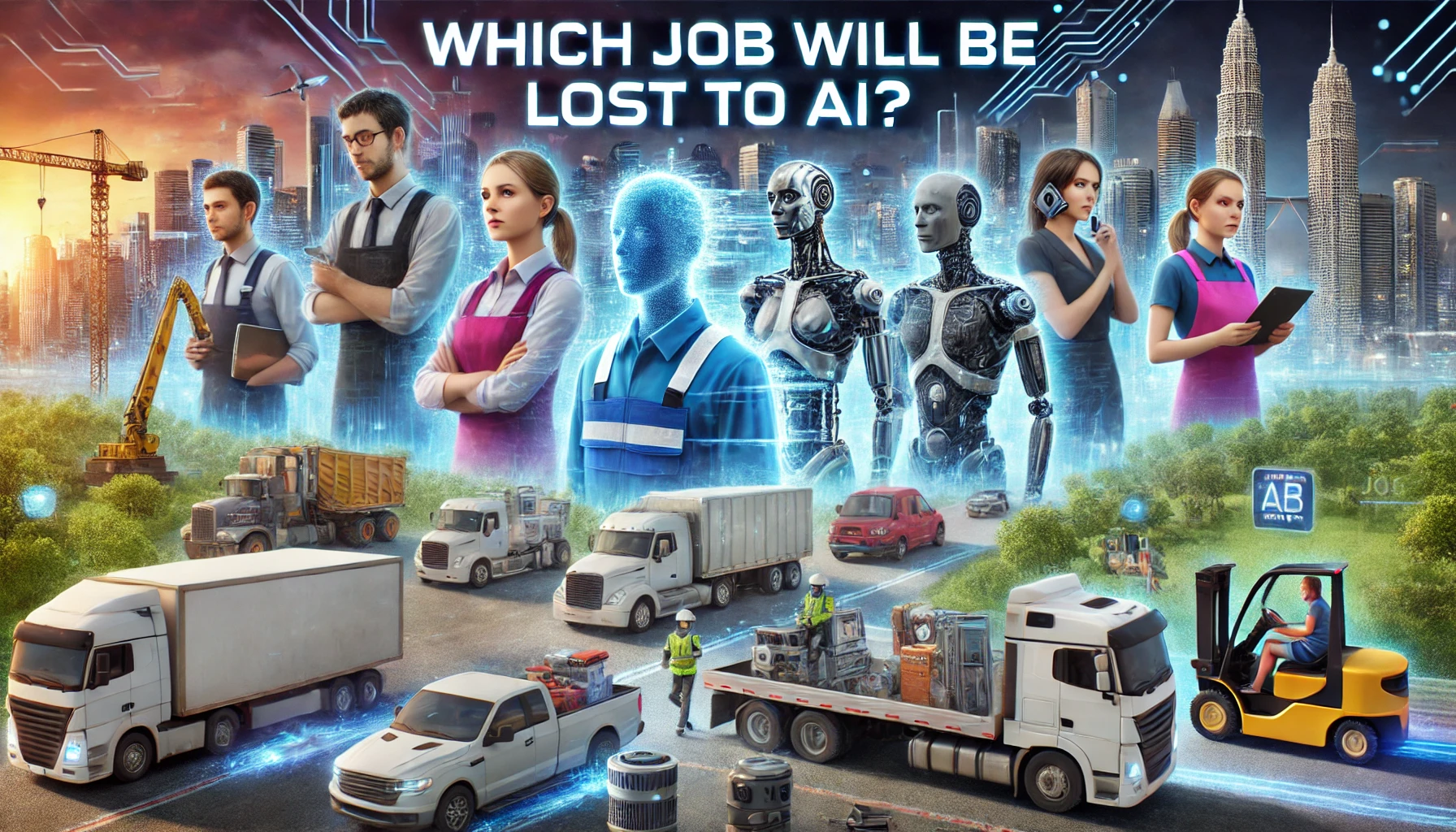Table Of Content
AI isn’t just replacing redundant work but burrowing its way deep into domains that were considered exclusive to highly trained professionals, from accounting to content creation. Thanks to ChatGPT and generative AI, all of that’s changing. Here’s where the most significant action is going down across industries.
Which job will be lost to AI ?
IT and Finance on the Frontlines
AI is automating domains in the IT sector such as software testing and cybersecurity analysis. On the other hand, AI systems handle financial roles of bookkeeping and auditing-previously considered to be a task dealing with voluminous data, involving much precision and speed. Instead, most organizations prefer financial procedures handled by AI tools to reduce cost and human error altogether .
Customer Service and Sales Reimagined
Customer service is increasingly being taken over by Artificial Intelligence-driven chatbots and automated sales platforms. When AI Chat Assistants can manage the basic inquiries and tasks, fewer sales representatives are needed for general day-to-day operations. This movement frees resources to shift focus towards high-order customer engagement and strategic selling on behalf of the enterprise.
Creative and Legal Fields Facing Disruption
Generative AI is turning upside down those areas of work that were considered immune to automation, be it legal analysis or creative writing. Today AI can create music to listen to, artwork to view, and even draft legal documents. In that way, lawyers and artists alike have been propelled headfirst into a whole new reality-one in which their role is augmented, if not out-and-out threatened, by AI-created alternatives, according to Nexford University.
Warehousing, Retail, and Operations
AI technologies make the process of logistics and retailing more systematic and automated. The warehouses are already dependent on more and more AI-powered robots for packing and sorting. In the case of retail, self-checkout systems reduce the need for cashiers, though companies still grapple with balancing efficiency against theft risks.
Human Roles in an AI-Driven Workplace
Although AI is taking over certain tasks, it is not annihilating the presence of people altogether. Areas such as human resources and healthcare stay less impacted because the ratio of emotional intelligence and human interaction is high in these areas. This job, too, is in evolution, whereby AI tools are augmenting the way professionals work, automating administration tasks, and freeing time up for more human-centered activity.
Data on AI impact on Lost Jobs
Here is the table, giving an estimate of jobs lost to AI since 2020 and projected up to 2030, based on many studies coming from organizations like the World Economic Forum or consulting firms like McKinsey, reflecting job displacement trends across various sectors.
| Year | Jobs Lost to AI (Millions) | Cumulative Jobs Lost (Millions) | Key Affected Sectors |
|---|---|---|---|
| 2020 | 2.0 | 2.0 | Manufacturing, Retail, Transportation |
| 2021 | 3.5 | 5.5 | Manufacturing, Finance, Transportation |
| 2022 | 4.0 | 9.5 | Retail, Customer Service, Logistics |
| 2023 | 5.2 | 14.7 | Finance, Healthcare, IT |
| 2024 | 6.0 (estimated) | 20.7 | Customer Support, Warehousing, Retail |
| 2025 | 7.5 (estimated) | 28.2 | Healthcare, Finance, Logistics |
| 2026 | 8.0 (projected) | 36.2 | IT, Manufacturing, Customer Service |
| 2027 | 9.0 (projected) | 45.2 | Retail, Finance, Data Analysis |
| 2028 | 10.5 (projected) | 55.7 | Healthcare, Transportation, Retail |
| 2029 | 12.0 (projected) | 67.7 | Manufacturing, Warehousing, IT |
| 2030 | 15.0 (projected) | 82.7 | Retail, Logistics, AI-based Jobs |
This table depicts the increasing tendency toward job replacement by AI in a series of industries. The industries most likely to be replaced by automation in 2030 are retail, finance, and customer service.

A list of the 16 AI Most Impacted Jobs and Why
Below you can find a list of what, in our opinion ,will be the jobs most impacted by AI, which are based on current trends and insights from around the industry. The listed roles are witnessing tremendous alterations brought about by automation, LLMs, and other AI-related technologies.
- Warehouse Workers: Automated robots perform packing, sorting, and warehouse management.
- Retail Cashiers: Self-checkout systems and online shopping reduce the number of cashiers.
- Sales Representatives: Automated marketing tools and AI assistants reduce labor need for human sales staff.
- Market Researchers: AI studies consumer data and trends, thus eliminating the need for manual research.
- Legal Assistants: AI tools help draft legal documents and conduct research, reducing support roles.
- Journalists & Writers: Generative AI platforms, of which ChatGPT is a part, write articles or creative content themselves.
- Insurance Underwriters: AI algorithms analyze risks and generate underwriting decisions automatically.
- Data Analysts: Large-scale data analysis is dominated by AI tools, which reduce human intervention.
- Graphic Designers-AI-powered design tools generate visuals themselves once they are briefed by a user, thereby saving manual effort.
- Content Creators-AI is now creating content for usage in marketing, social media, and SEO strategies.
- Auditors-AI streamlines the audition process by performing real-time analytics of a set of transactions.
- Medical Transcriptionists-AI systems carry out voice-to-text transformation and automate medical recordkeeping.
- Loan Officers: AI algorithms do credit analysis, and loan officers are no longer required to make a personal judgment on loans.
- HR Recruiters: AI sifts job applications and then selects candidates that best fit the job role.
- Manufacturing Workers: Much of the production in factories is overseen through robotics and AI.
- Social Media Managers: AI-powered tools optimize content strategy and engagement metrics themselves.
The above is also a representative list of how industries across sectors are shifting, with AI taking on tasks that were earlier the sole responsibility of humans. While some of these roles will move into the monitoring of AI processes, others might face severe downsizing.

